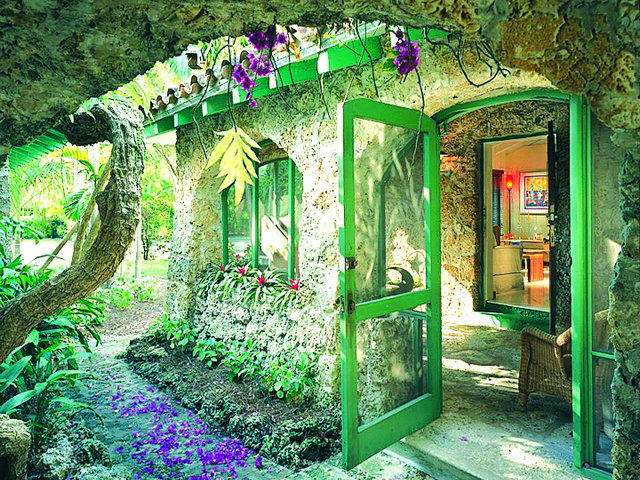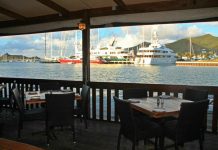
Nearly 50 people recently gathered at the Coral Gables Museum for a presentation on the whys and hows of coral rock and its significance to the founding of Coral Gables.
Guests also were able to enjoy a photo exhibit of more than 20 local coral rock homes in Coral Gables titled “Walk among the Corals” by local photographers Karelia Martinez Carbonell, president of HPACG, and Mike Butler. Coral Rock has been used extensively as a building material throughout the city of
Coral Gables since the beginning of its development. Many of the earliest residences in the area were constructed using the material, including the home of Coral Gables’ founder George Merrick, located at 907 Coral Way.
By 1922 many of the city’s first homes were being built near the Merrick House out of the same material. Much of the coral rock used in the early stages of the city’s construction came from a quarry which would later be transformed into the Venetian Pool, 2701 De Soto Blvd. The material not only was used for residences, but also important civic buildings including City Hall and the Coral Gables Women’s Club.
The Historic Preservation Association of Coral Gables (HPACG) and the Coral Gables Museum were co-presenters of the night’s event which was free for HPACG and museum members. Museum executive director Chris Rupp and program director Caroline Parker assisted in hosting the event.
A panel of experts made a presentation on the subject of building on coral rock, living in a coral rock home, and coral rock maintenance and restoration. Panelists included Rosa Lowinger and Kelly Ciociola representing Rosa Lowinger & Associates, and Gladys Margarita Diaz- Jourdain, local coral rock homeowner and architectural designer for Coral Rock Village.
Lowinger is a fellow of the American Institute for Conservation of Historic and Artistic Works. In 2009 she was awarded the prestigious Rome Prize in Conservation at the American Academy in Rome.
Ciociola is a Professional Associate of the American Institute for Conservation of Historic and Artistic Works. She holds an MS in Historic Preservation from the joint Clemson University and College of Charleston graduate program in Charleston, SC.
Diaz-Jourdain is a trained architect and urban designer specializing in the design and development of urban communities. She was visiting faculty at Cornell University, where she founded the Cornell in Miami Internship Program, providing students in the design field experience with project financing and public sector policy.
Founded in 1991, HPACG is a 501(c)3 nonprofit with a mission to promote the understanding and importance of historic resources and their preservation.






